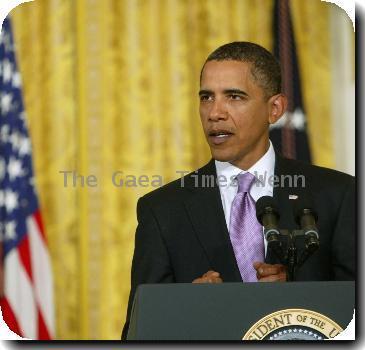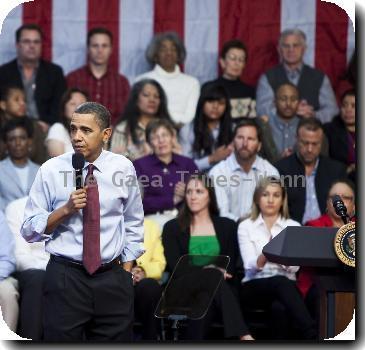Democrats, making patches to secure Senate votes, move banking overhaul bill closer to passage
By Jim Kuhnhenn, APWednesday, June 30, 2010
Bank bill gets patched up, moves closer to passage
WASHINGTON — Despite a last-minute patch to secure his vote, Republican Sen. Scott Brown said Wednesday he needs more time to study a sweeping overhaul of financial regulations before committing his vote.
His stance could leave Democrats short, for now, of the 60 votes they need to overcome procedural hurdles to the bill. It almost certainly means the Senate will have to wait until after the weeklong July 4 congressional break to take up the bill.
The House was expected to vote on a final, combined House-Senate bill, later Wednesday.
Congressional Democrats have been inching closer to passage of a major rewrite of financial industry regulations, making fixes as they go in hopes of securing the votes of straying Republicans.
On Tuesday, House and Senate negotiators reconvened to remove a $19 billion fee on large banks and hedge funds after Brown threatened to vote against the bill. Brown, of Massachusetts, supported a Senate version of the bill last month but said he objected to the fee, inserted by negotiators last week.
In a statement Wednesday, Brown said he appreciated the removal of the fee, but said he would review the bill over next week’s recess.
“I remain committed to putting in place safeguards to prevent another financial meltdown, ensure that consumers are protected, and that this bill is paid for without new taxes,” he said.
The death of Sen. Robert Byrd, D-W.Va., this week and fresh objections from Brown and Susan Collins and Olympia Snowe of Maine had threatened to derail the bill, already a year in the making.
Eager to salvage one of President Barack Obama’s legislative priorities, Democrats dropped the fee that would have helped pay for the legislation. Banks with assets of over $50 billion and hedge funds with assets of more than $10 billion would have footed the bill.
Instead, House and Senate negotiators, voting along party lines, agreed to pay for the bill with $11 billion generated by ending the unpopular Troubled Asset Relief Program — the $700 billion bank bailout created in the fall of 2008 at the height of the financial scare.
They also agreed to increase premium rates paid by commercial banks to the Federal Deposit Insurance Corp. to insure bank deposits. The premiums would increase from 1.15 percent of insured deposits to 1.35 percent by September 2020. The additional premium would be paid by banks with assets greater than $10 billion.
It was a solution Democrats weren’t keen on and most Republicans denounced. But in the Senate, with 60-vote thresholds needed to overcome procedural hurdles, a single senator has the leverage to change a bill. Brown, Collins and Snowe were three of 61 senators who had previously backed a Senate version of the bill.
The Senate has little time to take it up this week. In a rare honor, Byrd was to lie in repose in the Senate chamber for six hours Thursday. That and work on other unfinished legislation were likely to push the bill into the week of July 12.
White House spokesman Robert Gibbs conceded as much Tuesday, but added, “I don’t think there is a question now whether it will get done.”
Besides the three Republicans, Democrats also were working to win the support of Sen. Maria Cantwell, D-Wash., who voted against the Senate version last month. She complained the bill was not tough enough on banks.
If unable to secure 60 votes, Democrats would have to wait for West Virginia’s Democratic governor, Joe Manchin, to appoint Byrd’s successor. Manchin has said he has no timetable for his decision.
The far-reaching legislation would rewrite financial regulations by putting new limits on bank activities, creating an independent consumer protection bureau and adding new rules for largely unregulated financial instruments.
Tags: Barack Obama, Funerals And Memorial Services, Government Regulations, Industry Regulation, North America, Political Organizations, Political Parties, State Funerals, United States, Washington






